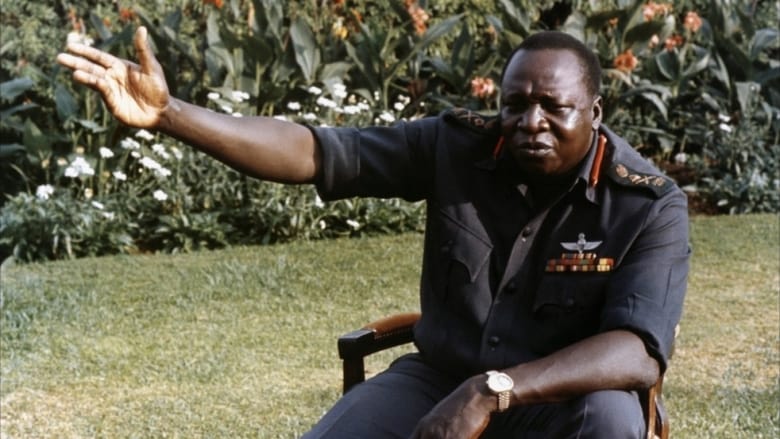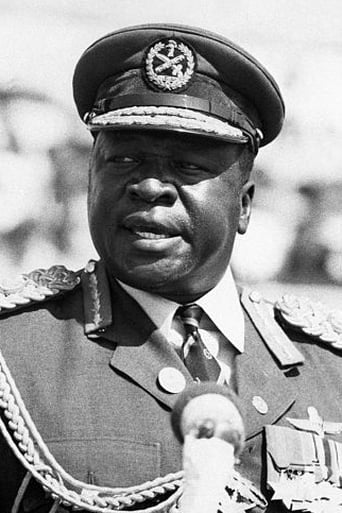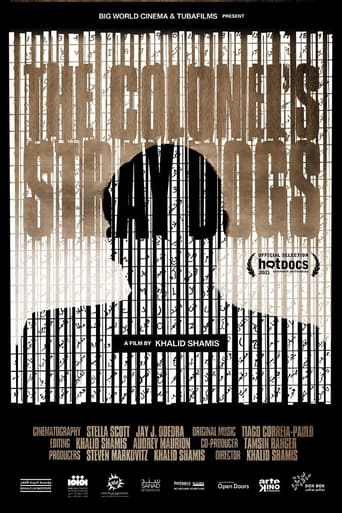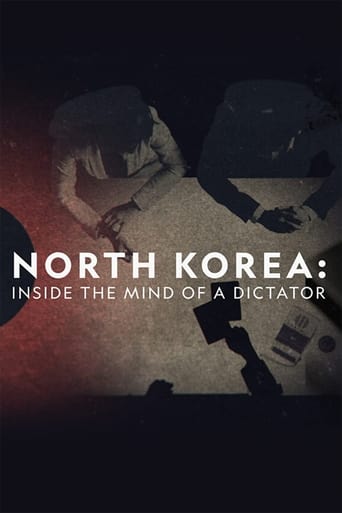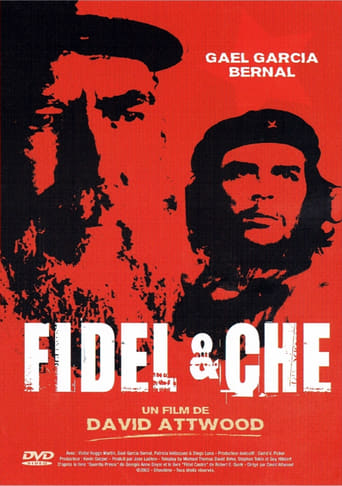General Idi Amin Dada (1974)
Filmmaker Barbet Schroeder shows the Ugandan dictator meeting his Cabinet, reviewing his troops, explaining his ideology.
Watch Trailer
Free Trial Channels
Cast


Similar titles
Reviews
It's funny, it's tense, it features two great performances from two actors and the director expertly creates a web of odd tension where you actually don't know what is happening for the majority of the run time.
Excellent and certainly provocative... If nothing else, the film is a real conversation starter.
This is a small, humorous movie in some ways, but it has a huge heart. What a nice experience.
I enjoyed watching this film and would recommend other to give it a try , (as I am) but this movie, although enjoyable to watch due to the better than average acting fails to add anything new to its storyline that is all too familiar to these types of movies.
Watching French filmmaker Barbet Schroeder's 1974 documentary General Idi Amin Dada: Autoportrait two things came to mind. First was an old Mad magazine spoof of Amin titled Idiot And Mean, in which, I believe the 1970s dictator of Uganda was visited by the crew of the original Star Trek television series, and also that fact that the word Dada, while literally part of Amin's name, also was an early 20th Century arts movement that embraced the meaningless of all art. The first point is obvious, because the name accorded Amin fits, and so does the second point fit, since the real Amin, as portrayed in this film, seems actually meaningless. He is now years dead, after being ousted and living out his life in exile in Saudi Arabia, and the anomic documentary oddly seems perfectly apropos of the man and the movement. One might say that General Idi Amin Dada: Autoportrait is, while not a great film, the first actually successful Dadaist work of art ever. Yet, I am more drawn to the first point, the Idiot And Mean riff, because, in watching this film, one must admit that, while the two words describe Amin to a proverbial T, the 92 minute long film shows that the word affable should also have been included.That's because Amin comes off as a very likable person, at least in his best moments, but like the girl with the curl in the middle of her forehead, when Amin was bad he was horrid, and the film gives glimpses of this, even though Amin does his best to destroy this. When the film premiered, it was actually taken as a comedy, and Amin was furious, and threatened to kill all French citizens living in Uganda unless Schroeder cut requested parts. Schroeder did, but restored the film once Amin went into exile. The whole project was apparently Amin's idea- a sort of vanity hagiography because he felt he was not respected in the West.In it, we see all sorts of nutty things, such as Amin's Anti-Semitism, his planned invasion of Israel, his delusions, his staging of events for the film, his love of The Protocols Of The Elders Of Zion- the notorious Anti-Semitic fraud, and his alienation and manipulation of his countrymen, who clearly fear him, yet recognize him as a buffoon. Yet, we also see him kind to his 18 children, playing musical instruments, laughing with people as he dances at assorted towns, and exhorting his ministry cabinet to do things on their own accord. We also read bizarre telegrams he sent to many world leaders, and see him clearly lying about his exploits in World War two, when he never served in that conflict. He also claims mystic powers, such as a divination of the date and method of his death; but he never reveals it.But, that's about all the film offers. It is not artful, it is not deep, it is not well made, and Schroeder never prods Amin at any depth. Yet, somehow it's a good film, all on the back of Amin and his oddities. Néstor Almendros's cinematography is pedestrian, at best, and in one scene Amin actually commands him to shoot a shot of a helicopter coming in. In another he actually predicts a black U.S. President, almost three and a half decades before it happened, and in yet another scene he foresees the modern suicide bomber as a weapon of war, so, in a perverse way he was sort of prescient. General Idi Amin Dada: Autoportrait, in some ways, is a time capsule. For those of us growing up in the 1970s he was an almost weekly staple of the nightly news, for one outrageous stunt or another, as well as the fact that he engineered a genocide of nearly half a million people in a nation of only ten million, yet it somehow captures one, and sends one back in time, to relive it as if happening afresh. Schroeder deserves plaudits for the film for, despite Amin's thumb on it, and his own flaws, it does what all worthwhile documentaries does: it tells a story that could only be told once, for Amin was, despite claims to the contrary, one of a kind, and anything but your run of the mill despot. And, I say this only as a man never under his rule: in a strange way this film almost makes one miss the big thug.I wrote almost.
The documentary "Général Idi Amin Dada: Autoportrait" directed by Barbet Schroeder ("Murder by Numbers" and "The Reversal of Fortune") presents us the self-portrait of one of the most mindless dictators ever existed, the megalomaniac Idi Amin Dada, Uganda leader from 1971 to 1979. Self-portraits are dangerous in the measure that the audience will only get what the portrayed wants to reveal about himself, which is his good side, after all who wants to show his own bad temper and mean deeds to the world?It would be a funny picture, since most of the time Dada appears to camera always smiling, joking around about anything (the 'Save the British' fund with Uganda donations destined to England's poor economy at the time was hilarious), if we weren't forced to remember who the man on the screen is and why he's not funny. He might not appear as the cannibal some say he was, or the man who commanded the murder of thousands of people (the film only mentions the Minister of Foreign Affairs, who was alive during the making of the film, a voice over explain he was killed two weeks later, presumably because he wasn't effective in his duty), he might not appear as a bad man at all but we can sense his craziness, the absurd in the things he exposes or even in his fight against Israel. The guy is nuts and it was unbelievable someone like him had the chance to be the leader of a nation. But that's what power makes with people, it makes them greedy, blind to other peoples problems, it makes them unreasonable. And he was all that!The film doesn't add anything interesting but it's not Schroeder's fault, it's Dada's own fault this being something almost irrelevant. He controlled everything, he wanted to present his tender moments with his 18 sons, or his Discovery Channel moments where the crocodiles and a elephant pay tribute to the man (so he thinks that's what the animals are doing). And politically speaking this man and the film have nothing good to say except a enormous contradiction when Idi says he likes Nixon but hates Kissinger, both part of U.S. government. The guy didn't had a clue of what he was saying, making his presence here something laughable rather than a dignifying portrait of his legacy, and he could have made so much more for his country.It's good for historical references, it has its importance, quite good to watch but that's it. The man illustrated here was so light, so funny and so friendly that Forest Whitaker's Oscar winning performance in "The Last King of Scotland" was more terrifying and more realistic than Dada himself. 6/10
I have no idea what the "irrelevant now" comment means. That comment in itself is "irrelevant" and quite "idiotic." Meglomaniac dictators will be around forever. This was the rarest of rare portraits of one. It wasn't a single interview on 60 Minutes, it was a long month-long look into the dictator.While it doesn't go into the holocaust he perpetrated on the Ugandans (a very valid point above,) the final meeting with the doctors shows exactly the fear and paranoia he felt. It is in the final scene; with Amin breathing heavily into the microphone, gulping down spit, eyes darting around the room in fear, that we can see what led him to kill 300-500,000 of his own people.Also, when Idi does his Crocodile Hunter impression ("there are more crocodiles here than anywhere in ze vhurld") it is more jarring because it's where and whom he fed the bodies of those he murdered.Keep in mind as well, that the murders were only beginning when the film was made. The film is effective in showing what led to the holocaust of the Ugandan people.
I recently watched Orson Welles "Citizen Kane". And then it came to me: Barbet Schroeder's "autoportrait" - albeit a documentary about a real tyrant, and one of the bloodiest ever at that is in important parts designed directly after the great masterwork of the 1940s. The impression of watching something staged that is apparently real, that's what is so fascinating about this movie.MINOR SPOILERS AHEADIt starts with a terrific close up of the portraited: Idi Amin Dada does not whisper "Rosebud". He just breathes heavily, shifting his eyes attentively from left to right and back it's just as enigmatic. His Xanadu is a Wildlife Park with crocodiles, elephants and exotic birds, a rooftop swimming pool and rolling grassland, where he enacts the destruction of Israel - tanks, jet planes, helicopters and walky-talkies included. In short: The movie shows us Uganda as a boy's dream.There are no banquets with ice figurines, but there is a "non confidential" cabinet meeting, with rows of identical attaché cases neatly aligned on the long conference table. (You wonder: Were there really no props, no directions at all from the film crew?) There are no showgirls to fête Idi Amin, but the tyrant joins a traditional dance at a formal dinner party, stomping around and wielding a spear with apparent glee. There is no failed opera singer that has to be applauded into success, instead Idi Amin claps at a crocodile after having asked the film crew "shall I make it move"? The crocodile does not or cannot comply with Amin's orders - no one knows what happened to it afterwards.Like in Citizen Kane, dreams are forced to become true. In fact, they overtake reality with all the horrible consequences this entails. Both movies are about characters with undeniable charisma who are powerful but for ever immature. One of them is fictional, the other is not. This does not really matter, it actually proves that certain behavior patterns are timeless and universal. They should be guarded closely in the presently globalized world.


